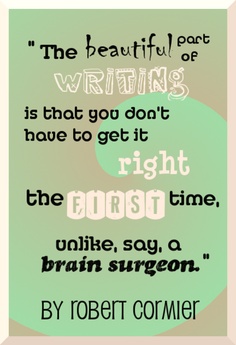Revising with your ArmsOnce you have written your rough draft, you should revise your paper before writing a second draft. When you are revising, think of the acronym A.R.M.S. to help you remember what you should be doing at this stage of the editing process.
Add new words, sentences, even entire paragraphs if you think the information will strengthen your argument or make your ideas clearer. Remove words, sentences, paragraphs, information and other details that are unclear, repetitive or otherwise damaging to the flow and clarity of your argument. Move information around to help make your ideas clearer or to help improve your argument. Try reordering your main points so that you end with the strongest part of your argument, for example. Substitute new words or phrases where your first choice makes things sound informal, cliche, confusing or repetitive. |
Proofreading with your Cups
Before you begin preparing your good copy, you should take the time to proofread your draft. When you are proofreading, think of the acronym C.U.P.S. to help you remember what you should be doing at this stage of the editing process.
Capitalization—make sure that you have capitalized all the words that require capitalization: names of months, days of the week, titles, the start of each sentence and proper names.
Usage—fix any words have been used incorrectly. Does that big word mean what you think it does? Do your nouns and verbs match? Have you been consistent with your pronouns?
Punctuation—double check that all your periods, commas, question marks, quotation marks, semi-colons and exclamation marks are in the right place.
Spelling—correct any spelling mistakes.
Capitalization—make sure that you have capitalized all the words that require capitalization: names of months, days of the week, titles, the start of each sentence and proper names.
Usage—fix any words have been used incorrectly. Does that big word mean what you think it does? Do your nouns and verbs match? Have you been consistent with your pronouns?
Punctuation—double check that all your periods, commas, question marks, quotation marks, semi-colons and exclamation marks are in the right place.
Spelling—correct any spelling mistakes.
It is a good idea to ask someone else to edit your paper after you have done a bit of editing yourself. Fresh eyes often catch mistakes that you may have missed, and someone who is reading your paper for the first time might be able to suggest improvements that you hadn’t thought of. They can also point out areas that they found confusing or boring to help you improve the clarity and quality of your writing.

